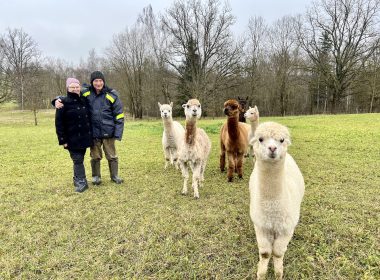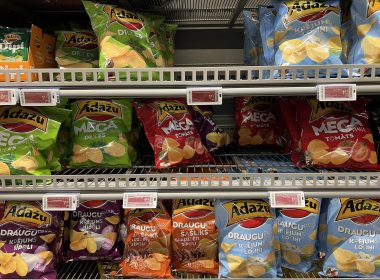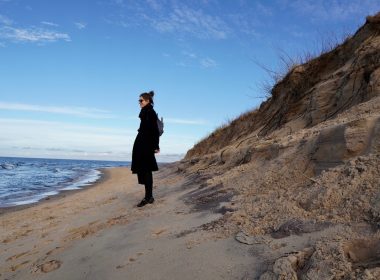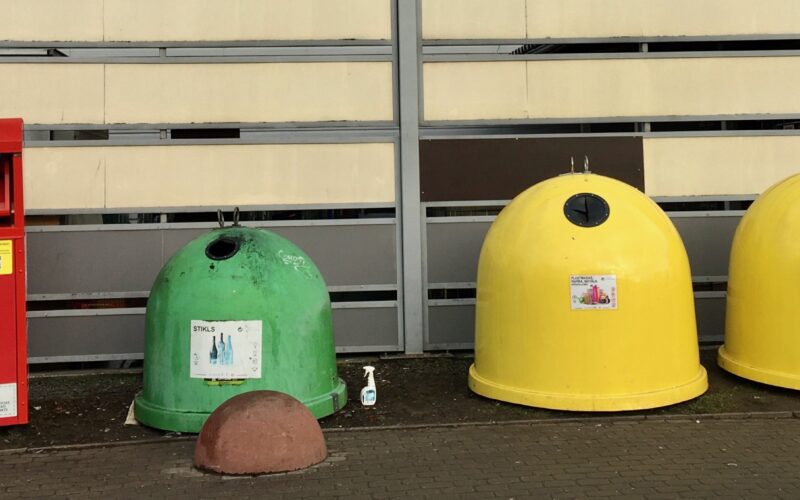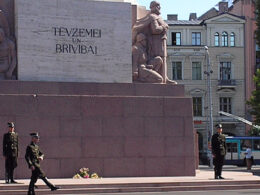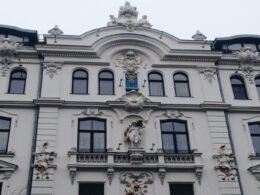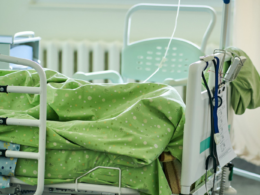Tips we can all introduce into our day-to-day to make life in Riga that little bit greener for the common good. Insights on tap water safety, where to buy organic produce, repair household appliances and more.
Organic and Local Produce Shops in Riga
You’ll recognise organic and farm produce shops by their signs – eko veikals, eko preces, dabīgi produkti, lauku labumi. Many of them operate as both bricks and mortar shops, and online shops. They tend to stock food, cleaning products and cosmetics, and some offer vegetable box schemes.
Here’s a Non-Exhaustive List of Organic Shops in Riga

- Livin, Krišjāņa Barona iela 24/26, Pulkveža Brieža iela 33 and elsewhere
- Dabas stacija, Lāčplēša iela 17
- Lavandas, Elizabetes iela 25
- Bioss, Dzirnavu iela 70
Zero Waste Shopping in Riga
Learn to plan your weekly shopping and arm yourself with jars, bottles and reusable bags. Riga has its fair share of zero waste shops.
- Burka, Krišjāņa Barona iela 59/61, Centrs
- Nosvērts, Stabu iela 46/48, Centrs
- Zaļais kalns, Āgenskalns Market
- Bodnīca, Centrs
And don’t forget the original zero waste shopping option in Riga – Riga Central Market and suburban markets like Āgenskalns Market, Čiekurkalns Market and Lubānas Market in Pļavnieki.
At the Supermarket in Riga

At the supermarket, look out for the words ekoloģisks, bioloģisks, no bioloģiskās lauksaimniecības, and the Latvijas ekoprodukts stamp on packaging to determine whether the item is local and organic. Producers go through a strict certification process to attain the status. Some products will have the European organic label.
For non-organic but local produce, look out for the zaļā karotīte (green spoon) stamp. To obtain said stamp, producers have to prove that at least 75% of the product’s ingredients are sourced in Latvia, and that the product is made in Latvia.
Tiešā Pirkšana
Latvia has a network of tiešās pirkšanas pulciņi (direct buying groups) connecting consumers to local farmers and small scale producers. The groups process orders weekly via an online system, and are run by group members on a voluntary basis.
Depending on the group, suppliers vary but the product range generally includes staples like seasonal vegetables, meat and dairy, as well as teas, honey, flour, and, in some cases, natural cosmetics.
As the groups are popular, many of them are full and you may need to join a waiting list. Once a member, you’ll be expected to take turns volunteering to help run the group.
Drinking Water in Riga
Riga’s tap water is safe for consumption! Any problems lie in the quality of the pipes rather than the quality of the water so you can either install better filters, or buy a water filter jug.
Fortunately, more and more cafes and restaurants are providing tap water free of charge to customers, the airport and the national library building are fitted with free drinking fountains. Kudos.
Recycling in Riga
While buildings should have their own recycling facilities, not all do. You may have to walk, cycle or drive to a shared recycling point. Here’s an interactive map to help find your closest recycling points. In terms of regular household waste, in Riga, it’s typically possible to recycle PET and HDPE plastics, cardboard, paper, glass bottles and jars, and batteries, but you should check with your building management company or waste management service. Since 2021, many plastic and glass bottles and cans are part of the packaging deposit system.
An unexpected place to drop off paper and cardboard is Ulubele animal shelter. They get money in exchange for recycling, and can use large pieces of cardboard for lining litter trays etc. You can also donate old towels, blankets and clothing without zips or buttons.
Note, other council areas have different systems in place.
Repairing Household Appliances, Clothes etc.
The idea of a circular economy is nothing new. In Riga, we have access to incredibly professional cobblers, tailors, watchmakers and repairmen. I’ve seen fantastic results on boots, which I’d almost given up on. Here are some addresses to get you started:
- Corner of Barona iela and Blaumaņa iela – watches, shoes, electronics, clothes
- Courtyard of Tērbatas iela 49/51 – shoes, clothes, sewing machines
- Ganību dambis 40c – PTA appliance repair shop.
I also recommend following the Repair Cafe movement on Facebook. They organise regular events where you can take your broken item and get taught how to fix it on your own.
When you do need something new for the closet, I’ve written about second hand clothes shopping here.
Donating Unwanted Items
Moving house? Kids outgrown their clothes? Whatever the reason, if you have anything worth donating (i.e. still usable!), there are a few places you can drop off items to give them another lease of life, like Otrā Elpa, Tuvu and Hopen charity shops, and the Red Cross. Your local recycling point might have a box for clothes and shoes, too. You might also use the Atbrīvojies no lietām Rīga Facebook group.
Charity Work
If you’re eager to get involved in environmental charity or volunteering projects, Green Liberty, Zero Waste Latvija and Dzīvnieku brīvība (Freedom for animals) are NGOs that welcome new volunteers and/or members.
Car Sharing
Car Guru, CityBee and Bolt Drive offer both small cars and big vans for rent through their apps. OX Drive offers Tesla vehicles. Car sharing is a great idea for anyone living in the city centre where owning a car is a true luxury considering the costs of parking. Besides, the public transport network is fully functional for day-to-day use.
—
Enjoyed this post on green living in Riga? Continue with Cycling In Riga: A Good Idea?


